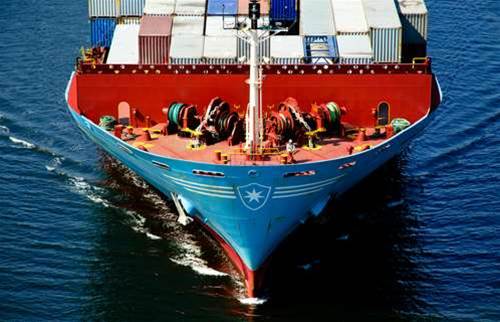The Tas Bull Seafarers Foundation has brought wi-fi services to nine ports across NSW, Western Australia and Victoria - with plans to expand to 20 more Australia-wide - for docked seafarers that are unable to leave their ships due to Covid-19 restrictions.

In early 2019, the foundation started supplying ships at berth with a portable wi-fi unit that delivered 100GB of data at 4G speeds.
It has now expanded on this initiative by offering a Cradlepoint LTE and comprising wireless cellular routers and wireless WAN software, to visiting vessels at nine ports.
The Foundation is now looking to secure funding to deploy the solution at 20 additional Australian ports.
Project manager Bernie Farrelly said the Cradlepoint device sends a “high quality signal throughout the area” and is located inside the ship as long as there’s access to a 4G signal.
“In fact when we first trialled the device, the 4G signal was a higher quality on the Cradlepoint device than we were receiving on our smartphones,’ Farrelly said.
"The setup is so simple that all we have to include is three different types of international power adapters in each case to ensure the devices can be connected to power on each ship.”
Farrelly said the foundation's original plan had been to install external access points on light poles at berths located adjacent to where a ship is berthed that could direct a wi-fi signal towards the ship.
However notwithstanding being cost prohibitive, this model proved to be impractical due to the inability to get a quality wi-fi signal through the steel hull.
Stuck on ships
Due to pandemic-related restrictions, seafarers - who are mostly international crews - are currently unable to disembark their vessels when they dock at Australian ports.
Tas Bull Seafarers Foundation executive chairman Robert Coombs said normally seafarers spent up to nine months at a time on a vessel.
“However during the Covid-19 pandemic, crews have been on ships for nearly two years, which is impacting the mental health of the workers," he said.
The foundation is using wireless as an internet connectivity lifeline for crews, who can use it to connect with family and friends, watch movies and get up-to-date information on countries on their ship's itinerary.
Ships do not usually have onboard wi-fi, though crews can sometimes pay to use a satellite service.
Farrelly said that internet access to the outside world meant seafarers could get direct and current information in their preferred language.
Health advice and Covid-19 updates otherwise “go through a chain of communications and is then translated for the crew onboard, which means delays and gaps in relaying important and timely information.”
The Tas Bull Foundation is now creating plans to bring its internet initiative to international ports.





_(20).jpg&h=140&w=231&c=1&s=0)





 iTnews Executive Retreat - Security Leaders Edition
iTnews Executive Retreat - Security Leaders Edition
 iTnews Benchmark Awards 2026
iTnews Benchmark Awards 2026
 iTnews Cloud Covered Breakfast Summit
iTnews Cloud Covered Breakfast Summit
 The 2026 iAwards
The 2026 iAwards












_(1).jpg&h=140&w=231&c=1&s=0)



